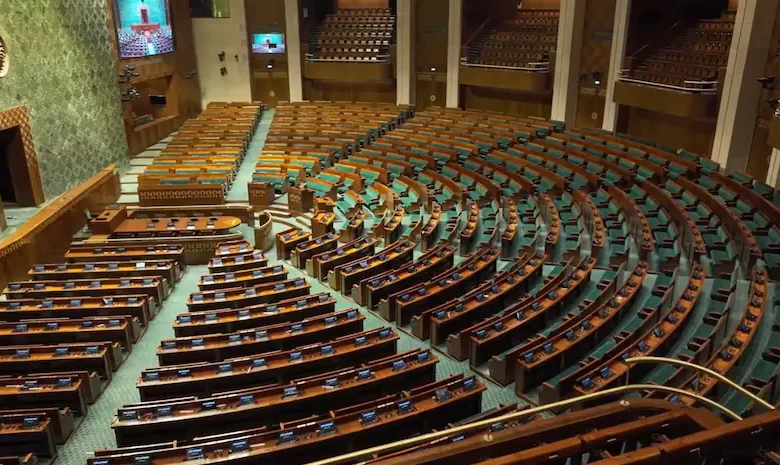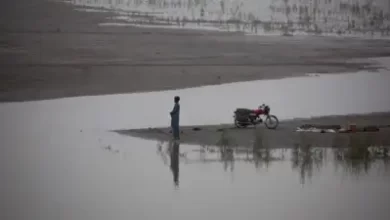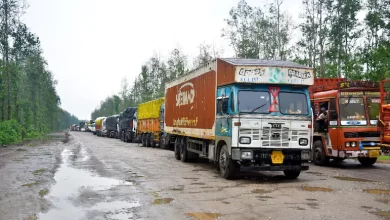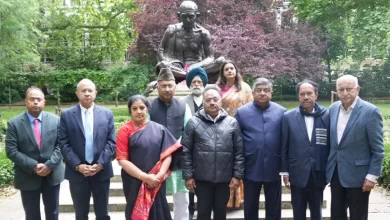
Centre set to table ‘One Nation One Election’ Bill in Lok Sabha today
Union Law Minister Arjun Ram Meghwal will present two key bills during the session: The Constitution (One Hundred and Twenty-Ninth Amendment) Bill, 2024 — commonly referred to as the ONOE Bill — and The Union Territories Laws (Amendment) Bill.
Ahead of the bill’s tabling, the BJP has issued a three-line whip, directing all its Lok Sabha MPs to be present.
Following its introduction, the ONOE Bill — a significant part of the BJP’s long-standing electoral agenda — is expected to be referred to a Joint Parliamentary Committee for wider consultation. Union Minister Meghwal is likely to request Lok Sabha Speaker Om Birla to initiate this step.
The proposed committee will be constituted proportionally, ensuring representation of MPs based on their party strength. As the largest party, the BJP will head the panel and hold a significant number of seats within it. Speaker Om Birla is expected to announce the committee’s members by Tuesday evening.
Meanwhile, several Opposition leaders, including Rahul Gandhi, Mamata Banerjee, and MK Stalin, have strongly criticised the simultaneous election proposal. They argue that the bill is “anti-democratic” and accuse the government of using it as a tool to “erode India’s democratic framework”.
The Centre plans to roll out the “One Nation One Election” scheme in two phases. The first phase will combine Lok Sabha and state Assembly elections, while the second will align local body elections — such as those for panchayats and municipalities — within 100 days of the general elections.
What does the bill propose?
According to a draft of the bill circulated on December 13, if the Lok Sabha or any state Assembly is dissolved before completing its full five-year term, midterm elections will be conducted solely for the remainder of that term.
The bill proposes the inclusion of Article 82(A), which mandates simultaneous elections for the Lok Sabha and all State Legislative Assemblies. Additionally, it calls for “amendments to Articles 83 (duration of Houses of Parliament), 172, and 327 (power of Parliament to make provisions with respect to elections to Legislatures)”.
The amendments will take effect from an “appointed date” to be declared by the President, coinciding with the first sitting of the Lok Sabha following a general election.
The bill’s implementation timeline indicates that the “appointed date” will follow the next Lok Sabha elections in 2029, with simultaneous elections expected to begin in 2034. The Lok Sabha’s tenure will be fixed at five years from the appointed date. For state Assemblies elected after this, their terms will end simultaneously with the Lok Sabha’s tenure.
If the Lok Sabha or any state Assembly is dissolved early, the newly elected House or Assembly will serve only the remaining duration of the original term.
Execution through three bills
To implement the “One Nation One Election” scheme, the government has proposed three bills, including two constitutional amendments:
- First Constitutional Amendment Bill
- Facilitates concurrent elections for the Lok Sabha and state Assemblies.
- Suggests changes to Article 82A to include provisions for an “appointed date” and simultaneous tenure endings for both the Lok Sabha and state Assemblies.
2. Second Constitutional Amendment Bill
- Requires ratification by at least half of the state Assemblies.
- Seeks to amend electoral roll regulations, mandating cooperation between the Election Commission of India and State Election Commissions for local body elections.
3. Third Bill
- Aligns the tenure of Union Territories with legislative Assemblies — including Puducherry, Delhi, and Jammu & Kashmir — with the Lok Sabha and state Assemblies.
- Proposes changes to key legislations such as the Government of National Capital Territory of Delhi Act (1991), the Government of Union Territories Act (1963), and the Jammu and Kashmir Reorganisation Act (2019).





